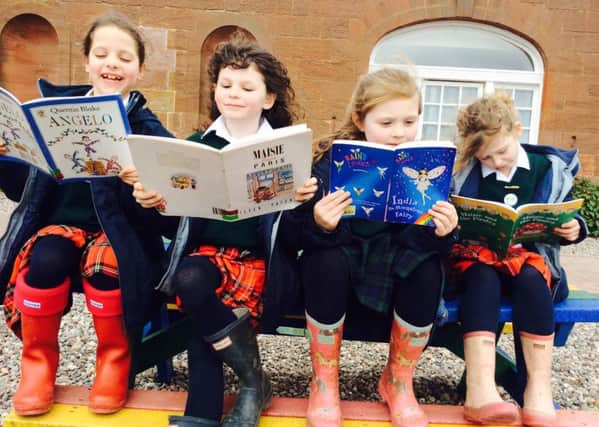First day of the rest of their young lives


The first day of school is a key moment in any child’s life, and also a milestone for parents. Clad in smart kilted uniforms and proudly carrying their new schoolbags, each year we welcome excited children and their parents into our Reception Class (Primary One).
Early Years Teachers work hard to make that first day (and the first year, and every year after that), an enjoyable and manageable experience for children.
Advertisement
Hide AdAdvertisement
Hide AdStarting school is an important next stepping stone along a child’s journey of education – one that began from the moment of birth and has continued through childcare, playgroups, and the variety of nursery group activities you and your child have participated in together.
Good Early Years Teachers will work alongside you to help your child feel as confident and relaxed as possible about their first official day in the classroom.
Transition activities and move-up days will help your child begin to know their new teacher and classroom, and they may be provided with a memory box or first-day activity pack to help them keep track of their adventures. If your child is moving up within an all-through school, it’s likely they’ll already know the Early Years Teachers. They may well have taken part in assemblies and joint activities between nursery and school throughout the year, which we believe dramatically eases any worries or uncertainties.
There are, of course, some simple things parents can do to help prepare their child for beginning school. An understanding of daily routine helps children to navigate the school day more easily. Personal care skills such as being able to put on their own shoes and jacket will help the first day go more smoothly.
Simple tactics such as making sure your child knows what their schoolbag looks like (or adding an easily identifiable keyring to their bag) will increase the likelihood of them bringing it home at the end of the day.
Children happily absorb vast amounts of new information. Simple activities as you go about your day together can go a long way to supporting early literacy – reading street signs together, recognising their own name in writing, and enjoying books together at bedtime. Likewise, early numeracy skills can be developed through everyday activities. A simple sandwich, cut into four triangles, has the opportunity to introduce the concepts of a half, a quarter, square, triangle and counting to four – all while preparing lunch! Never underestimate how much a child can take in; we introduce words like “adjective” very early, and always call things by their correct nouns.
Children have a natural curiosity, which we believe should and can be wonderfully sustained throughout their schooling and beyond. All children have a slightly different learning style, and creative play can help with the development of all kinds of fine motor skills and educational ideas.
Drawing letters in sand, moving a magnetic alphabet around a fridge door or using a visual calendar to plot and follow the day’s activities can all stimulate a child’s learning in new and engaging ways. Craft activities such as threading beads onto string is great for hand-eye coordination, develops pattern skills, and is valuable for pre-reading skills such as left to right tracking.
Advertisement
Hide AdAdvertisement
Hide AdPerhaps most importantly, it’s fun, and helps to instill in children a love of learning that will carry through into the classroom.
There sometimes seem to be almost as many parenting and education experts out there as there are children. It’s easy to feel overwhelmed by the often-conflicting advice on how best to give your child the best start in life. My years of experience teaching small children have highlighted the diversity of ways in which children learn. The most consistently beneficial approach parents can take is to provide rich daily experiences to talk about with their children. A child who can articulate how they feel, ask thoughtful questions, and show a keen interest in exploring their world will have all the tools they need for a smooth transition to school. One who has already started to discover the joy of learning will thrive.
If there is a golden rule for Early Years Education, then, perhaps it’s simply to enjoy the journey with your child. Have fun, explore their world alongside them, and focus on enjoying your time together.
The very best thing you can do to support your child’s education is to kindle their natural curiosity, and inspire in them a life-long love of learning.
• Pam Ferguson is the Early Years Co-ordinator at Kilgraston
SEE ALSO